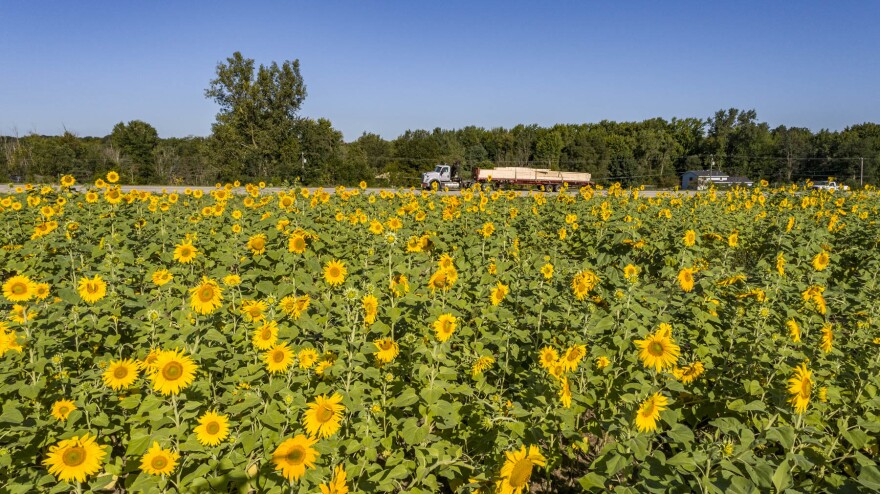The Michigan Department of Transportation says there’s a reason for dead vegetation in the median along 131 south of D Avenue. It's because workers are prepping the area for a roadside sunflower pollinator garden, one of two planned for the Kalamazoo region.
Originally scheduled for 2023, MDOT spokesman Nick Schirripa said it turns out funding for the project won’t be in place until 2024. He said pollinator gardens and native plants along freeways have additional benefits. They reduce mowing and maintenance needs while helping to control invasive species.
“The larger program, essentially, is to manage our roadsides, manage our right-of-ways, manage our medians in a way that makes them more environmentally friendly, more ecologically friendly,” said Schirripa.
“And then as a side benefit, we have a few spots where we can plant certain plants that are more beneficial to certain pollinators. So, it's a small piece of a larger goal.”
In response to the decline in populations of bees, butterflies, and other pollinators, MDOT started the pollinator project program in Michigan’s Bay Region in 2015. MDOT’s Amanda Novak worked on the pilot project. In an Earth Day podcast last month, Novak said she previously underestimated the power of sunflowers.
“I remember the first year I went out there to look at them when they were in full bloom. I was shocked at the number of bees. I mean the buzzing in the plots is crazy," she said.
Novak said the Michigan sunflower has earned its “superhero” reputation.
Along with the sunflowers at US-131 and D Avenue, Schirripa said MDOT will add a second sunflower pollinator garden at the highway's interchange with I-94. But is it a safe location for insects?
Anyone who's been on a summer road trip knows that by the time you reach your destination the car windshield and grill are often splattered with bugs. A pollinator garden by the side of the freeway may seem dangerous for butterflies and bees.
“Well, you're not wrong,” said Schirripa. “I mean, there certainly is a mortality rate associated with butterflies crossing a roadway. And a couple of things that we've learned from other studies: One, the higher and lower speed roadways have a lower mortality rate, kill fewer butterflies, than roads, kind of in the mid-speed - say 45-55 mph.”
Schirripa said studies also show that insects along highway pollinator gardens are more likely to die by natural causes than by cars. That’s why high-speed freeway medians and roadside gardens work.
“We don't want to just put down more pavement. That's not our goal. We want to be good neighbors. And being good neighbors doesn't just mean to the people who live along the freeway or the people who use it. We certainly want to be good neighbors to the environment that allows us to do it.”


